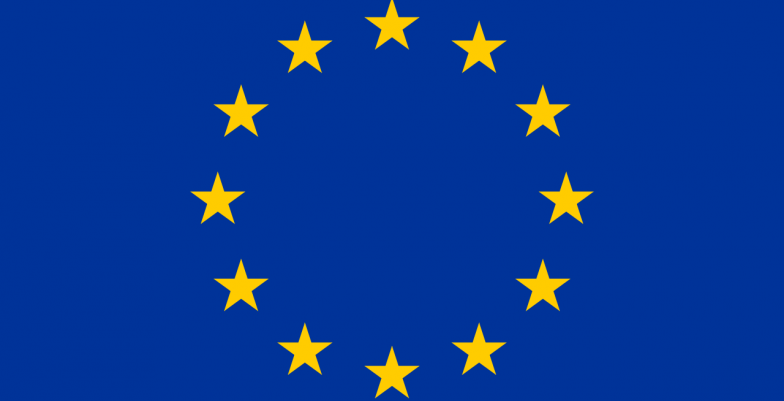The 1995 genocide in Srebrenica
In July 1995 in Bosnia and Herzegovina, over 8 000 Bosniak men and boys were systematically murdered by Bosnian Serb forces in Srebrenica. Approximately 30 000 civilians were forcibly transferred from the enclave.
The Srebrenica Genocide is considered the worst atrocity on European soil since World War II and represented the final act of a broader campaign of ethnic cleansing against Bosniaks across Bosnia and Herzegovina.
- The date 11 July has been designated by the UN General Assembly as the International Day of Reflection and Commemoration of the 1995 Genocide in Srebrenica.
The events at Srebrenica
In April 1993, the UN declared Srebrenica a 'United Nations Safe Area' following the deteriorating humanitarian situation. After orders from Bosnian Serb leader Radovan Karadžić to "create an unbearable situation of total insecurity" for Srebrenica's inhabitants.
The offensive began on July 6, 1995 with Dutch UN peacekeepers in the area unable to provide protection. On 11 July 1995, General Ratko Mladić entered Srebrenica with his forces. Bosnian Serb forces separated men and boys from women and children in the area.
Mass executions of unarmed Bosniak civilians began on July 13 in various locations with the bodies buried in mass graves, while thousands attempting to escape through forests were systematically hunted down and killed.
Why Srebrenica is considered genocide
Forensic experts have identified thousands of victims of the Srebrenica executions using DNA analysis. The International Criminal Tribunal for the Former Yugoslavia (ICTY) found that a systematic and organised genocide was committed with the intent to eliminate the Bosnian Muslim population of Srebrenica. In the 1948 Genocide Convention, genocide is defined as acts "committed with intent to destroy, in whole or in part, a national, ethnical, racial or religious group". Following investigations and prosecutions, high-level perpetrators like Karadžić and Mladić were convicted and sentenced to life imprisonment. Altogether, courts have sentenced 54 individuals to a total of 781 years in prison and five life sentences for crimes related to Srebrenica.
The importance of commemoration
Ongoing genocide denial and attempts to rewrite history re-traumatise survivors and threaten the preservation of historical truth. The search for missing victims, identification of remains, and testimonies of survivors continue as acts of resistance against denial and distortion. Historical truth must be preserved and transmitted to future generations because we cannot take peace for granted. We must learn from the past and work for peace every day. Commemoration, through sites like the Memorial Center Srebrenica in Potočari and annual remembrance events, is crucial for preserving the truth and preventing future atrocities.
EEAS 30th anniversary commemoration
To mark the significant 30th anniversary of the Srebrenica Genocide in 2025, the European External Action Service (EEAS) organized two major commemorative events. On 25 June 2025, the EU High Representative for Foreign Affairs and Security Policy / Vice-President of the European Commission, Kaja Kallas, opened the photo exhibition "MEMENTO: Fragments of the Srebrenica Genocide" at the EEAS headquarters, presenting a powerful collection of portraits of survivors and objects recovered from mass graves, each accompanied by personal testimonies. On 1 July 2025, the EEAS hosted a screening of the documentary "Samir Mehic Bowie - Letters from Srebrenica" at Bozar, followed by an expert roundtable discussion exploring themes of resilience, friendship, and moral courage in the face of genocide. These events were developed in partnership with the Post-Conflict Research Center from Sarajevo, the Memorial Center Srebrenica and the Mechanism Information Programme for Affected Communities from The Hague.
The EU's commitment to justice and truth
The commemoration of the Srebrenica Genocide is a painful reminder of the need to stand up firmly and decisively for peace, human dignity and all values underpinning the European Union. Srebrenica is part of our shared European history and we need to honour the memory of those killed and all those still missing. The European Union stands as a steadfast partner for justice, having been a longstanding supporter of judicial accountability and transitional justice in the Western Balkans for over two decades. European commitment to remembrance extends beyond words to concrete action:
- Funding the International Criminal Tribunal for the former Yugoslavia (ICTY) Outreach Programme (1999–2017)
- Supporting the ongoing Mechanism Information Programme for Affected Communities since 2019
- Currently funding projects to strengthen national prosecutors in processing outstanding war crimes cases
Commemoration and education remain essential tools in defending established facts and reaffirming our shared humanity.
- To learn more, follow the link to download ICTY - Facts about Srebrenica









